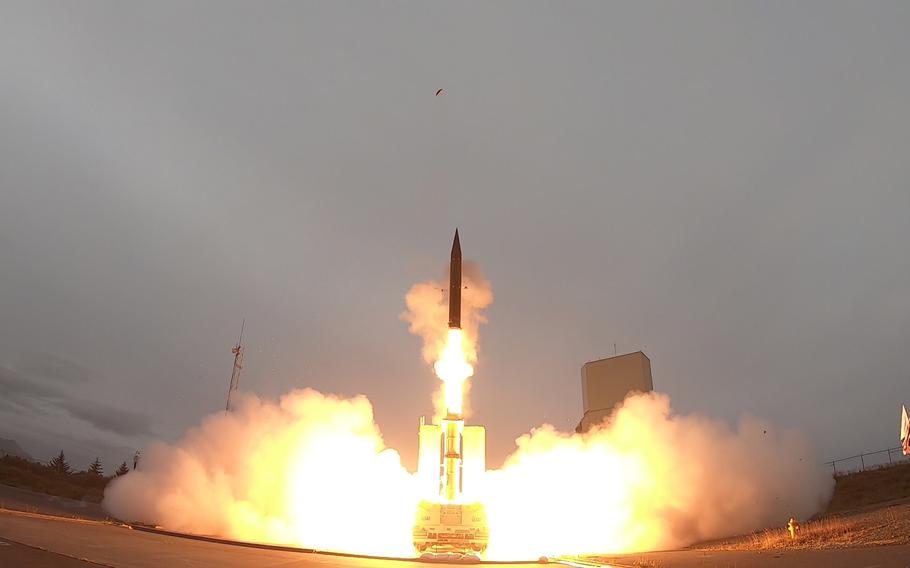
The Israel Missile Defense Organization and the U.S. Missile Defense Agency test the Arrow-3 Interceptor missile in Kodiak, Alaska on July 19, 2019. Arrow-3 interceptors were used by Israel to defend against Iran’s missile barrage on Oct. 1, 2024. (U.S. Missile Defense Agency)
Israel’s Arrow missile-interceptor system performed as expected against Iran’s attack on Tuesday, though some damage was caused in heavily populated areas including Tel Aviv, according to the head of the Israeli manufacturer.
Arrow, the most advanced of Israel’s defense systems, helped the country and allies including the U.S. intercept the bulk of the roughly 200 ballistic missiles fired by Iran this week. It was Tehran’s second salvo against Israel in less than six months.
“Each ballistic missile was radar-detected. Then, based on its trajectory, a specific work plan was immediately designed for the interception,” said Boaz Levy, chief executive officer of Israel Aerospace Industries.
The U.S. said the attack “appears to have been defeated and ineffective.” And there was just one fatality, a man in the West Bank.
Still, Iran gave less warning than when it fired projectiles in April. More of the ballistic missiles entered Israel’s air space this time and the Israeli military said some bases were hit, though without suffering much damage.
Emergency services reported damage in several Israeli cities on Tuesday, while online video footage showed fireballs crashing to earth across swaths of the country. Levy said some of that was likely metal shards created by successful interceptions.
He declined to give interception rates and the overall cost of Tuesday’s defense operation. But, he said, the price tag is “incomparable” with the damage the missiles would’ve caused had they gone unchallenged.
Israel vowed to retaliate against Iran, which said that will be met with an even fiercer attack. That’s raised fears of a region-wide war dragging in the U.S., Israel’s main ally.
Each Arrow interceptor costs about $3.5 million and is designed to shoot down missiles fired from up to 2,400 kilometers (1,491 miles) away. They can do it above Earth’s atmosphere, where long-range ballistic missiles spend part of their flight.
Defending against Iran’s attack of 300 missiles and drones in April was estimated to cost around $1 billion, Bloomberg reported.
A new model, Arrow 4, is nearing its production phase, Levy said. It’s being developed alongside Israel’s Defense Ministry and the U.S. Missile Defense Agency. Last year, IAI sealed Israel’s biggest-ever military export deal — worth $4.4 billion — to sell Arrow 3, which was used on Tuesday, to Germany.
Iran’s assault this week came after days of intense attacks by Israel on Hezbollah, the Islamic Republic’s most powerful allied militia group. Airstrikes in Lebanon, where Hezbollah is based, have wiped out most of the group’s leadership, including long-standing chief Hassan Nasrallah. Hezbollah is designated a terrorist organization by the U.S. and other countries.
IAI has “a continuous production line and is doing its utmost to have it working with accordance to the threats on Israel,” Levy said.